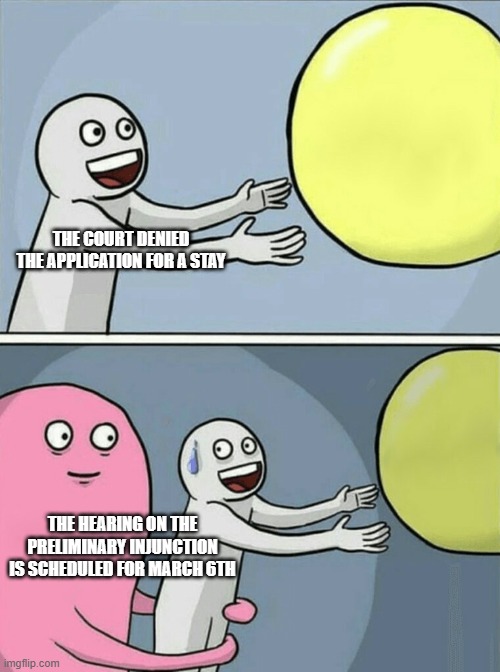Diogenes
Nemo me impune lacessit

In an interesting 5-4 split, the Supreme Court has denied the Trump Administration’s application for a stay of a district court’s temporary restraining order (TRO) against the Administration’s effort to freeze $2 billion in funds from the U.S. Agency for International Development.
The Administration is down by one vote but hardly out in the fight with lower courts over the control of this funding.
The unsigned order in Department of State v. AIDS Vaccine Advocacy Coalition refuses to stay the temporary restraining order of U.S. District Judge Amir Ali to force the payment of the money frozen by the Administration.
However, there is more than meets the eye in this short, unsigned opinion.
While unsigned, it is clear that Chief Justice John Roberts and Associate Justice Amy Coney Barrett joined the three liberal justices. The reason is the dissent of Associate Justice Samuel Alito, who was joined by Justices Thomas, Gorsuch, and Kavanaugh.
The dissent has sharp elbows for both Judge Ali and the five justices in the majority:
Does a single district-court judge who likely lacks jurisdiction have the unchecked power to compel the Government of the United States to pay out (and probably lose forever) 2 billion taxpayer dollars? The answer to that question should be an emphatic “No,” but a majority of this Court apparently thinks otherwise. I am stunned.
Alito acknowledged the lower court’s “frustration with the Government” as well as the “serious concerns about nonpayment for completed work.”
However, he noted that this is “quite simply, too extreme a response. A federal court has many tools to address a party’s supposed nonfeasance. Self-aggrandizement of its jurisdiction is not one of them.”
The key here is that this was a controversial move to review a TRO, which is generally not reviewable.
What is clear is that there are four justices who were still prepared to do so and would obviously be likely to grant review in the next round.
That next round would come after the hearing on the preliminary injunction, which is scheduled for March 6th.
It can then be appealed to these awaiting justices.
Only four are needed to grant review, so you do the math.
View: https://x.com/JonathanTurley/status/1897336763255009348

